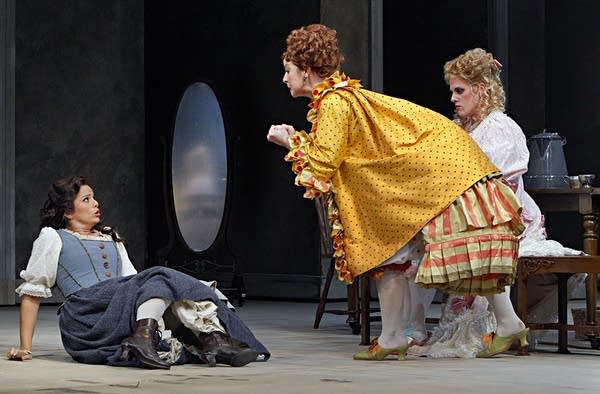As we acknowledge Veterans Day and prepare to rebroadcast a moving St. Olaf performance of Benjamin Britten's War Requiem (November 14, 8:00 p.m.), we're looking at the many ways composers were touched by the conflagration that was known as "the Great War" before being eclipsed just a few decades later by a conflict that was even more terrible. (Thanks to John Birge and Vaughn Ormseth for their assistance in researching this post.)
A number of composers were directly involved in the First World War. Alban Berg worked on his opera Wozzeck while he served in the Austro-Hungarian army. Arthur Bliss was wounded (twice) and gassed while serving in the French forces, and the English composer Ernest John Moeran suffered lifelong health problems from wounds incurred while serving as a despatch rider. George Butterworth, commended for gallantry in the British forces, was killed by a sniper at the Battle of the Somme.
Joseph-Maurice Ravel was 39 years old when war broke out in 1914, and he tried his damnedest to become a pilot in the French forces. Ravel's age and poor health conspired against him, though, and instead the composer entered service as a truck driver. He had already begun composition of his piano suite Le tombeau de Couperin, which he completed in 1917, dedicating the individual movements to the memory of specific friends who had been killed in battle. The sprightly piece, however, hardly sounds like a requiem. When asked about the seeming incongruity, Ravel replied that his friends' deaths were "sad enough."
Frederick Delius had already started his requiem when hostilities broke out, and it was largely completed by the end of 1914. A planned premiere soon thereafter was postponed, and by the time the finished work finally premiered in 1922, the composer — whose nephew died in the British service — had dedicated the piece "to the memory of all young artists fallen in the war."
Across the Atlantic, Charles Ives was horrified at the catastrophic conflict, and wrote a trio of war songs set to text by the composer himself ("Tom Sails Away") and the Canadian poet John McCrae, including the famous poem "In Flanders Fields": "In Flanders fields the poppies blow/ Between the crosses, row on row/ That mark our place; and in the sky/ The larks, still bravely singing, fly/ Scarce heard amid the guns below."
Britten, who was born in 1913 and grew up in the wake of World War I, wrote his 1962 War Requiem to commemorate the rebuilding of Coventry Cathedral after the original cathedral was destroyed by the Luftwaffe in 1940. Britten's composition incorporates writing by another poet who — like McCrae — died in service during the First World War. Several poems by Wilfred Owen, a British soldier, appear in the War Requiem — among them "Anthem for Doomed Youth" and "Strange Meeting."
The First World War has continued to inspire composers including Kevin Puts, whose opera Silent Night — about the Christmas Truce of 1914 — was premiered by the Minnesota Opera in 2011 and went on to win a Pulitzer Prize.
Do you have favorite compositions inspired by World War I, or by war generally? Please share them as a comment.
Love the music?
Show your support by making a gift to YourClassical.
Each day, we’re here for you with thoughtful streams that set the tone for your day – not to mention the stories and programs that inspire you to new discovery and help you explore the music you love.
YourClassical is available for free, because we are listener-supported public media. Take a moment to make your gift today.












